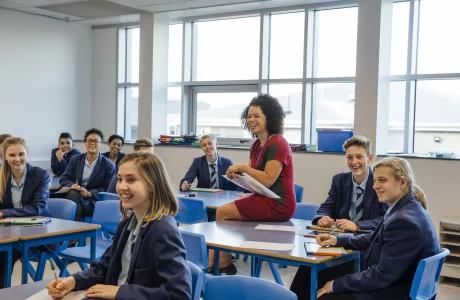By Stephen McKernan
Headmaster St Edward’s Preparatory School, Cheltenham
Revising the School Curriculum for 2020/21
The current DfE guidance for the full opening of schools in September 2020 asks that schools meet the following key expectations if considering revisions to their school curriculum for academic year 2020 to 2021:
-
Teach an ambitious and broad curriculum in all subjects from the start of the autumn term, but make use of existing flexibilities to create time to cover the most important missed content: Up to and including key stage 3, prioritisation within subjects of the most important components for progression is likely to be more effective than removing subjects, which pupils may struggle to pick up again later. In particular, schools may consider how all subjects can contribute to the filling of gaps in core knowledge, for example through an emphasis on reading
-
Aim to return to the school’s normal curriculum in all subjects by summer term 2021: Substantial modification to the curriculum may be needed at the start of the year, so teaching time should be prioritised to address significant gaps in pupils’ knowledge with the aim of returning to the school’s normal curriculum content by no later than summer term 2021.
-
Plan on the basis of the educational needs of pupils: Curriculum planning should be informed by an assessment of pupils’ starting points and addressing the gaps in their knowledge and skills, in particular making effective use of regular formative assessment (for example, quizzes, observing pupils in class, talking to pupils to assess understanding, scrutiny of pupils’ work) while avoiding the introduction of unnecessary tracking systems.
-
Develop remote education so that it is integrated into school curriculum planning: Remote education may need to be an essential component in the delivery of the school curriculum for some pupils, alongside classroom teaching, or in the case of a local lockdown. All schools are therefore expected to plan to ensure any pupils educated at home for some of the time are given the support they need to master the curriculum and so make good progress.
Practical Coronavirus Schools Guidance
Here Headteacher, Stephen McKernan provides a 12 point leadership strategy to reduce the spread of Coronavirus in schools:
12 point Leadership strategy to reduce the spread of Coronavirus
1. Communicate regularly with your parent body – this is your community, they depend on the leadership you are showing.
2. Brief staff daily either by email or face to face – don’t have them guessing your strategy!
3. Ensure your staff know who they will report any concerns regarding symptoms – usually the Head! Put in place a collaborative ‘medical needs excel form’ on Office 365 for example.
4. Update the Crisis Management Plan for your school with your leadership team and trustees, to be able to continue education if/when you have to close.
5. Risk Assess a number of scenarios that could/will unfold – learn from Schools in China and Italy.
6. Have your Blended Learning Strategy ready including actual learning activities if you need to close again and buy in the extra hardware needed for staff to work from home. think about how you are going to transition from remote learning to a mixture of face to face and home learning.
Have a plan in place of how admin staff will work remotely. How will you know about any continued Safeguarding concerns and the sickness status of any family?
7. Use Public Health England webpage, which has numerous useful resources – send them out to staff and parents as soon as possible. Display them for pupils to read (when appropriate).
8. Ensure your school has up to date employee contact and emergency contact details on record
9. Ensure toilet and washing facilities are frequently replenished with soap and hand sanitiser (if you have this). Ensure better record keeping of toilet washing by staff
10. Ensure hot water is working in all washing facilities to aid with thorough hand washing
11. Place anti-bacterial gels and clean tissues around the school ( if you can still source them)
12. Keep on top of the cleaning – ensure wastepaper bins (with used tissues), toilet facilities and communal hand touching areas such as door handles and entry pin codes are cleaned regularly. Give staff a small spray bottle, so that they can clean door handles in addition to cleaning staff.




